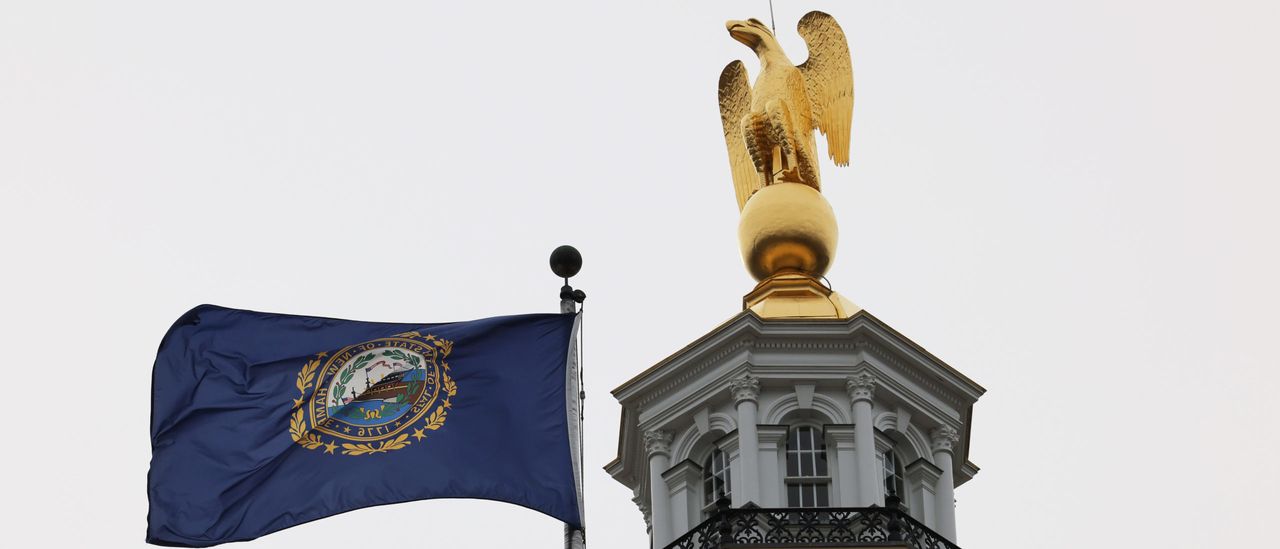|
New Hampshire has displaced Florida as the most economically free state, according to the Fraser Institute’s new Economic Freedom of North America report. The findings demonstrate that, while size and location account for some of a state’s success, free-market friendliness is everything.
This annual report, now in its nineteenth edition (one of us is its lead author), offers a comprehensive analysis of economic freedom using 2021 data (the most recent available). The report defines economic freedom as “the ability of individuals to act in the economic sphere free of undue restrictions.” The top five states in the report are what one might expect. Unsurprisingly, these top five states tend to spend less, do not have a personal income tax, and have reasonable labor market regulations. New Hampshire improved its economic freedom score from 7.92 to 7.96 to retake the top spot after losing it in the prior year. Florida fell from the top as it dropped from 7.97 to 7.80. Tennessee declined from 7.85 to 7.73 for third place. Texas inched down from 7.67 to 7.64, and South Dakota fell from 7.73 to 7.59. Conversely, the least economically free states were New York (4.09), California (4.27), Vermont (4.27), Oregon (4.56), and Hawaii (4.58), all of which lost ground since the last report. Each state has some of the highest rates of taxation and government spending, as well as stringent labor market regulations. In the freest quartile of states, the population grew on average by one percent in 2022, compared to a 0.1 percent decline in the least free quartile. Americans are voting with their feet in favor of economic freedom, fueling the flood of California and New York refugees pouring into Texas and Florida. Furthermore, hundreds of research papers have used the index, almost universally finding that more economic freedom correlates with positive outcomes such as higher incomes, faster income growth, lower unemployment, and more entrepreneurial activity. Bluntly, states with less government spending, lower taxes, and less burdensome labor market regulations have more opportunities for people to flourish. While the report has many compelling findings, two states stand out: New Hampshire and South Dakota. New Hampshire has embarked on a journey of economic liberation in recent years. In 2021, the state had significantly reduced taxes and had begun its ongoing quest to abolish interest and dividends taxes, a huge step toward reducing the tax burden. While the state’s taxes are already relatively low, they continue to decline. New Hampshire does not have a state minimum wage, reducing labor market regulations allowing wages to be market-determined instead of government-mandated. This helps attract young people and others with less experience, training, or education. As a result, household incomes in the Granite State are among the highest in America. Consistently, states with low minimum wages draw more people than average, while states with high minimum wages — California, New York, Illinois — are experiencing out-migration. Not only businesses, but also parents and students in New Hampshire have seen their freedom expand through school choice, which will help improve economic outcomes. In its commitment to providing school choice for all, the state has implemented education freedom accounts. These accounts empower parents to make educational choices that best suit their children’s needs while promoting a competitive schooling landscape that benefits teachers and students. South Dakota, too, has made remarkable strides in economic freedom, which became particularly evident during the challenging times of the COVID-19 pandemic. In 2021, the state was an exemplar of resilience and recovery, boasting the lowest unemployment rate in the country after the pandemic hit. Its output recovered pre-pandemic levels before any other state, with its real GDP growing by nearly five percent. Fortunately, the state never issued stay-at-home orders or mask mandates. Instead, state leadership allowed individuals to make decisions concerning personal health and safety, a common theme that has assisted the state’s flourishing. One key factor contributing to South Dakota’s economic success is its unique tax policies. The state is a rare tax haven with no corporate or personal income taxes and no durational limits on trusts. By allowing families to hold wealth indefinitely within trusts, and letting earners keep more of their hard-won incomes, South Dakota has remained a top spot for entrepreneurs. This tax-friendly environment in South Dakota reaffirms a fundamental economic principle: spending and taxes influence individual choices. As evidenced by the state’s success, people gravitate toward regions with lower tax burdens and more favorable financial policies. The success stories of New Hampshire and South Dakota underscore the power of economic freedom in fostering human flourishing. In a society where consumers are free to choose, businesses must continually improve the quality and affordability of their products and services. This dynamic situation fuels increased productivity and benefits everyone in the economy. Economic freedom isn’t just about lower taxes. It encompasses a broader spectrum of policies that allow individuals to make decisions about their lives, finances, and education. It’s about governments empowering people with opportunities rather than restricting or directing activity. By following New Hampshire and South Dakota’s lead, other states can unleash the power of economic freedom to boost investment, create jobs, improve human flourishing, and make their regions more competitive and attractive places to live. In a world where economic challenges are ever-present, these states serve as beacons of hope, proving that less government spending, lower taxes, and reduced labor market regulations can pave the way to a brighter economic future, full of greater opportunity for all. Originally published at Daily Caller.
0 Comments
Leave a Reply. |
Vance Ginn, Ph.D.
|


 RSS Feed
RSS Feed